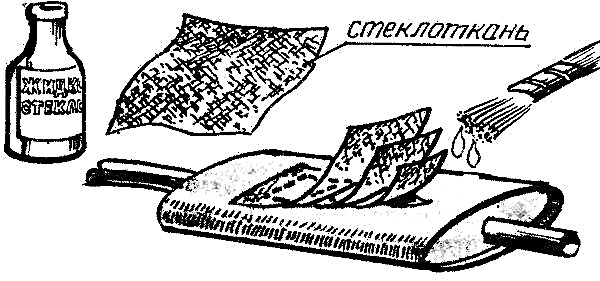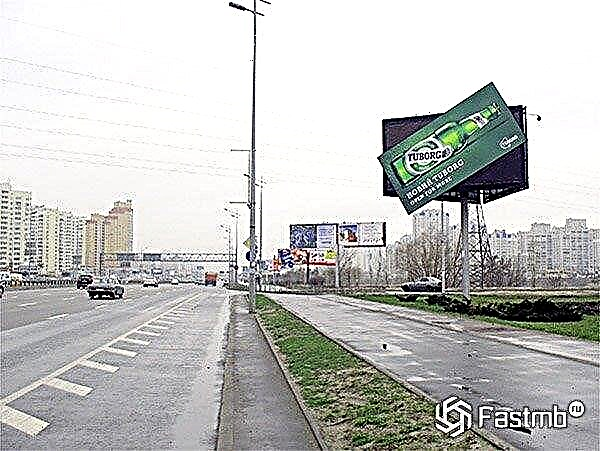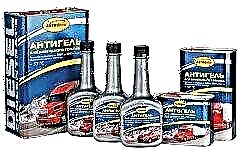

The content of the article:
- Features of diesel fuel
- Classification of antigels
- The principle of antigel action
- conclusions
Antigel (a depressant additive) is an anti-freeze liquid that increases the frost resistance of petroleum products (gasoline, diesel fuel, lubricants, etc.). Accordingly, anti-gel fluids (additives) are also used for diesel engines.
Moreover, antigels are more relevant specifically for diesel engines, since in winter, diesel fuel behaves completely differently from gasoline - it begins to thicken, complicate engine start-up and create serious problems for the high-pressure fuel pump (injection pump), as well as nozzles that spray diesel fuel. As a result, the high-pressure fuel pump and injectors begin to operate in a mode of increased wear and may fail prematurely and unexpectedly.
Technologically, the problem looks like this: diesel fuel contains heavy hydrocarbons, which at low temperatures begin to transform into separate gel substances, in the form of a gel. And the lower the temperature, the more these substances turn into paraffin, which clogs the fine filter and, naturally, blocks the access of fuel to the engine cylinders.
Features of diesel fuel

Diesel fuel is available in summer, winter and arctic. Besides, diesel fuel has certain "temperature" properties:
- Cloud point... Upon reaching the cloud point in diesel fuel, the process of formation of insoluble microparticles of ice and water begins, as a result of which the fuel becomes cloudy.
- Filtration temperature limit... At this temperature, diesel fuel becomes viscous and paraffin crystals are formed in it, clogging the pores in the filters for cleaning the fuel system.
- Pour point... When it is reached, the crystallization of hydrocarbons will occur, as a result of which the diesel fuel will lose its fluidity and stop circulating through the fuel lines.
For summer diesel fuel, the "cloud point" and "limiting filtration temperature" are -5 ° C. "Pour point" - from -10 ° С.
For winter diesel fuel (in a temperate climatic zone) "cloud point" is -25 ° C, "limiting filtration temperature" is -35 ° C. For a cold climatic zone - an additional -10 ° C degrees more.
For arctic diesel fuel The "cloud point" is -35 ° C, and the "limiting filtration temperature" is -45 ° C. The "pour point" will be -55 ° С.
Important! The formation of wax in diesel fuel leads to the failure of all filter elements and the entire fuel system, which entails high repair costs.
It should be noted that the parameters of pour point and cloud point are not standardized by the technical regulations. And the volatility of diesel fuel, according to the same technical regulations, can be the same in any climatic conditions.
The limiting filtration temperature is a conventional temperature threshold for the operating state of the engine. Below this temperature, the fuel system becomes ineffective and the engine stops working.
Classification of antigels

Diesel antigels are classified according to their chemical nature:
- Polyolefin;
- Condensing (non-polymeric);
- Polymethacrylate.
Typically, the anti-gel formulation includes: a starting additive, aromatic aliphatic hydrocarbons, and an ethylene vinyl acetate copolymer. Additionally, many antigels contain components that prevent the formation of new deposits in the lubrication system and destroy previously formed deposits.
As practice has shown, polyolefin depressants are not the best option, as they worsen the filtration properties of diesel fuel. However, in general, they cope with their task quite effectively.
There are also complaints about condensation (non-polymeric) antigels - these depressants have proven to be ineffective.
Polymethacrylate antigels are becoming more and more popular. At the moment, they are considered the most effective, and so far there have been no difficulties in using them.
The principle of antigel action

According to the principle of action, depressants (antigels) can be divided into two types:
- Preventing the accretion of wax crystals. In this embodiment, the molecules of the additive are deposited on the paraffin crystals and do not allow them to grow to critical sizes.
- Facilitating the crystallization of paraffinic formations, but with the formation of clots of the desired shape, which do not impede the passage of fuel through the fine filter.
In both of the above options, the number of paraffin crystals will not decrease, but their size will be "controlled" within the required limits, sufficient for the passage of fuel through the filters.
It should also be remembered that in order for the antigel to perform its functions, it is necessary to follow certain rules:
- Use antigel only at a positive temperature (not lower than 0 ° C). The greatest effect is achieved when diesel fuel is mixed with antigel until cloudy.
- Do not dilute the antigel with gasoline. Such dilution, of course, can lower the limiting filtration temperature, but will not solve the problem of diesel fuel stratification.
- Purchase only diesel antigels, as only they will be able to prevent diesel fuel from freezing.
- Use only certified and preferably proven depressants.
- Strictly follow the instructions for the antigel and observe the dosage.
- Choose the frequency of use of the antigel individually, taking into account the objective need.
Conclusions

So, the use of depressants (antigels) is nothing more than an attempt to make winter diesel fuel out of summer diesel fuel “at home”. And the antigels offered for sale are analogs of factory additives that are used in the production of diesel fuel on an industrial scale.
It is quite easy to increase only the temperature properties of diesel fuel using the appropriate antigel additives. However, this will not make winter diesel fuel from summer diesel fuel, since these are different substances that differ not only in additives, but also in fractional-group composition. That is why the cost of producing real high-quality and truly winter diesel fuel is significantly more expensive than conventional diesel fuel.
At the same time, a completely natural question arises - why use antigels, if there is already a special winter diesel fuel, in which there should be no problems eliminated by antigels? And here there can be two reasons for using antigels: the absence, as well as the low quality of winter diesel fuel.
The global fuel market is highly regulated, and it is not customary to take liberties in it. But in Russia the situation is somewhat different: in words everything is just as strict, but in practice such a concept as "removing administrative obstacles to business development" is often exploited. As a result, regulatory documents sometimes change in the direction of weakening requirements and to the detriment of quality. Not to mention the fact that it is not uncommon for gas stations to sell summer diesel fuel as winter diesel fuel.
Also, do not forget about the Russian specifics, in which a huge number of low-quality fakes of antigels are sold, which cause significant damage to the engine.
Conclusion
If you nevertheless decide to use antigels for a diesel engine, then it is better to do this in the off-season, starting in late autumn, when it is no longer clear what kind of diesel fuel is sold - it is still summer or has already switched to winter.
It is important to know that depressants are suitable only as a preventive measure, when the diesel fuel has not yet changed its state of aggregation. As for the manufacturers of both fuel and cars, some of them do not directly recommend making a small "oil refinery" out of their car, and experimenting without extreme necessity, trying to make high-quality winter diesel fuel out of summer diesel fuel - diesel engines are very sensitive to the quality of diesel fuel ...











